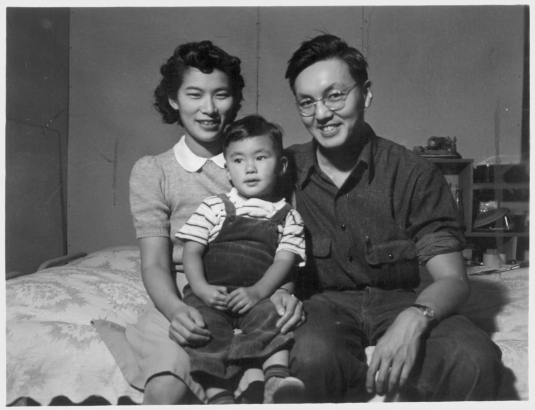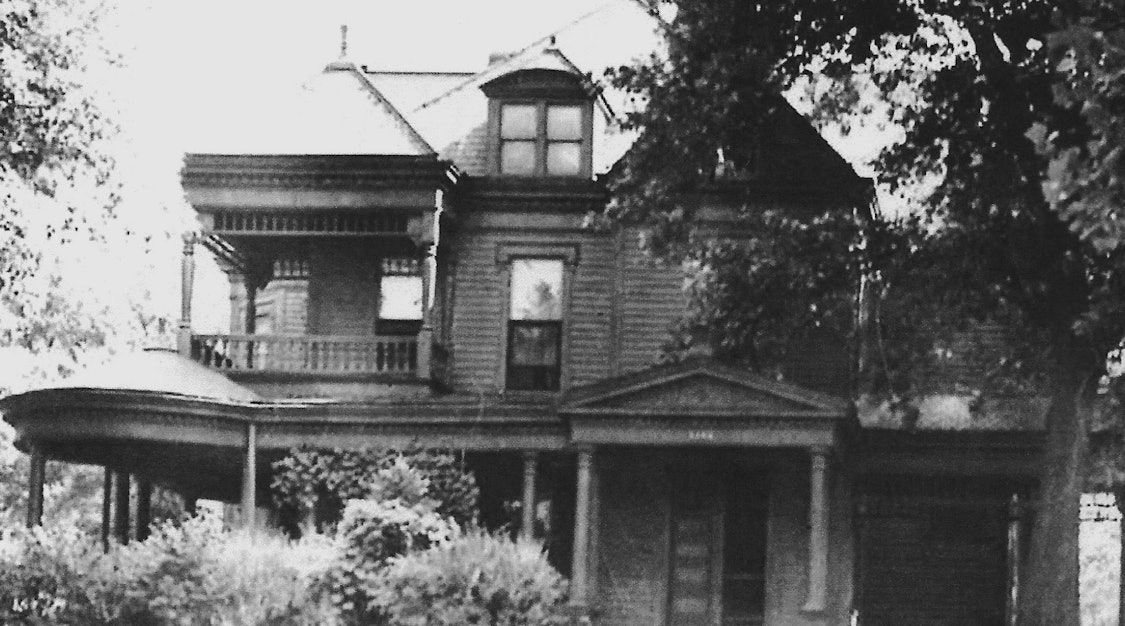Herb Strentz recounts some little-known Iowa history from the 1940s. -promoted by Laura Belin
Here’s an “Iowa nice” story for you—a break from the disturbing news and commentary of the day, particularly the news about bigotry and assaults on Americans of Asian descent.
And, no, we’re not talking about 1975 to 1980, when Governor Bob Ray led the way in welcoming to Iowa some 1,200 to 1,500 Tai Dam refugees, and then other Asians, from the horrors of war in South Asia. Those efforts included an Iowa-led response to “boat people” fleeing the impacts of the Vietnam war and Cambodians escaping the horrors of the Khmer Rouge regime of Pol Pot.
Ken Quinn offered a fitting tribune and summary of those times in the Des Moines Register when Ray died in July 2018. (Quinn had joined the Ray administration on leave from the U.S. Foreign Service and later served as U.S. Ambassador to Cambodia and president of the World Food Prize Foundation.)
In an email, Quinn said, “In regard to the Vietnamese Boat People refugees…hundreds of thousands came to America as the direct result of Gov. Ray’s leadership.”
But let’s go back even before that, back to the early 1940s, to something we should be reminded of. In the midst of World War II, anti-Japanese fervor was rampant, of course. And yet — and yet: The Des Moines area welcomed more than 500 Japanese Americans, including some 60 family groups, to live and work here. Those newcomers escaped incarceration in the ten camps in the western U.S. and Arkansas where some 112,000 Japanese Americans were held under Executive Order 9066, issued by President Franklin D. Roosevelt on February 19, 1942.
The Des Moines program, led by the American Friends Service Committee (Quakers), proved so successful that Des Moines was praised as a model for the nation by Dillon Myer, the executive director of the War Relocation Authority. The WRA was almost an Orwellian label for incarcerating about 85 percent of the Japanese Americans in the U.S. behind barbed wire for pretty much the duration of WW II.
(Myer is a story in himself because he replaced Milton Eisenhower, Ike’s brother, who had resigned as WRA director after only 90 days in office, out of frustration with the failure of his efforts to ameliorate the treatment of the Japanese Americans. Myer, a career-long federal bureaucrat, then served as executive director until the end of the WRA. To his credit, Myer picked up where Milton Eisenhower left off in combatting the politics and hysteria that had led to EO 9066.)
Here is some of what Myer said in tribute when he spoke in Des Moines on October 26, 1944.
The story of relocation here in Des Moines is an outstanding example of tolerance, fair play, and effective community action in acceptance of these uprooted people. Almost two years ago, even before the WRA established an office in this city, the local YWCA and the Friends Service Committee developed an interest in relocation and formulated a program to help us in carrying out our job. More recently, an over-all coordinating committee of nearly 50 members representing virtually every club, organization, and church of prominence in the community has been formed to carry on this work. And the results might well be held up as a model to the entire country. […]
These people have been accepted not merely as efficient and willing workers but — perhaps even more important — as people in the full sense of the word.
The national AFSC had similar programs in a few other cities, and perhaps Myer focused on Des Moines because he was acquainted with Gardner (Mike) Cowles, the publisher of The Des Moines Register and Tribune.
Like most of the older generation, neither Quinn nor David Oman, who served Ray as press secretary and chief of staff, recall any awareness or mention of the WW II rescue efforts at the time of the Bob Ray responses.
This article draws upon the Myer speech and an article about the AFSC program in the Spring 1990 issue of The Iowan magazine, written by Tom Walsh, then director of the Hoover Library and Museum in West Branch, with his religion as a Quaker listed with his byline.
The center of the operation was in a Quaker “hostel” rented by the AFSC at 2150 Grand Avenue and run by Ross and Libby Wilbur. Ross later served for 23 years as Iowa’s Director of Child Welfare.
The hostel was converted from a boarding house, and its ten rooms could accommodate up to 25 people. Guests not yet employed paid $1 per day for room and board, while those who had found work but were looking for homes paid $1.50 per day. (Adjusting for inflation, those figures would be about $15 and $22.50 today.)
AFSC hostel at 2150 Grand Avenue in Des Moines. Photograph published in The Iowan magazine’s Spring 1990 issue, republished with permission
A report on hostel operations for the 10 months from December 1943 to September 1944, provided by the AFSC, listed:
- Average number of Japanese Americans to use the hostel each month: 58
- Average number using the hostel each day: 18
- Average length of stay per guest before placement: about a week
- Meals served per month: about 1,700, or 56 a day
- Job placements, as reported by the WRA, probably were typical of work available in the community, including professional (physicians, accountants, nurses), skilled (fruit and vegetable buyers, technicians, firemen) and unskilled and farm workers.
One well-remembered refugee to Des Moines was Bill Hosokawa (1915-2007). Thanks to the acquaintance of Myer and Cowles, Hosokawa, a 1937 journalism graduate of the University of Washington, was hired as a copy editor at The Register.
One of Hosokawa’s colleagues at the Register was Carl Gartner, father of Michael who some 30 years later would be executive editor and then president of The Register. Carl held many editing jobs at the Tribune and the Register, from 1931 until retiring in 1972. Michael recalled, “I remember my dad talking about Bill Hosokawa and what a nice man he was…My dad greatly admired him and used to talk about the injustice that he had suffered during the war.”
In 1946, Hosokawa left the Register to begin an almost 40-year career at the Denver Post. He wrote a dozen books, with the Des Moines connection setting him on that path.
Another Hosokawa link is Dr. Neil Nakadate of Ames, a retired professor emeritus at Iowa State, whose parents were friends of Hosokawa. He says Hosokawa’s time at the Register is “a great example of how non-Japanese people enabled former internees to get back to work and on their feet.”
Hosokawa’s work as a journalist and author is summarized well in the Densho Encylopedia, a good record of the American-Japanese experience under EO 9066. Hosokawa’s career is a signature story of “Iowa nice” back in the 1940s.
Some end notes:
• Of course, it was not always “Iowa nice.” While the AFSC program was quite a a success, Walsh wrote that the some doors to opportunity were not open to the Japanese Americans. For example, one union refused to issue union cards to the Japanese Americans, and some Des Moines residents objected to them moving next door or into the neighborhood.
• Myer’s speech from 1944 and Quinn’s tribute from 2018 are well worth reading in full.
• Because of the pandemic, the archives of the AFSC cannot be accessed for further information until at least September 1.
• In November 2015 there was no “Iowa nice” response to refugees from civil war and atrocities in Syria. Then Governor Terry Branstad declared that for security reasons the state would provide no welcome or services to such refugees.
On balance, it is time for another “Iowa nice” or “U.S. nice” story.
Herb Strentz was dean of the Drake School of Journalism from 1975 to 1988 and professor there until retirement in 2004. He was executive secretary of the Iowa Freedom of Information Council from its founding in 1976 to 2000.
Top image: Bill, Alice, and young Mike Hosokawa at the Heart Mountain Relocation Center on September 16, 1942. From the Bill Hosokawa papers collection at the Denver Public Library.



1 Comment
Excellent Reminder of Goodness - once upon a time
Thanks Herb Strentz – it is time to show more humanity to fellow human beings like these earlier Iowans.
klaurila Thu 8 Apr 10:34 PM